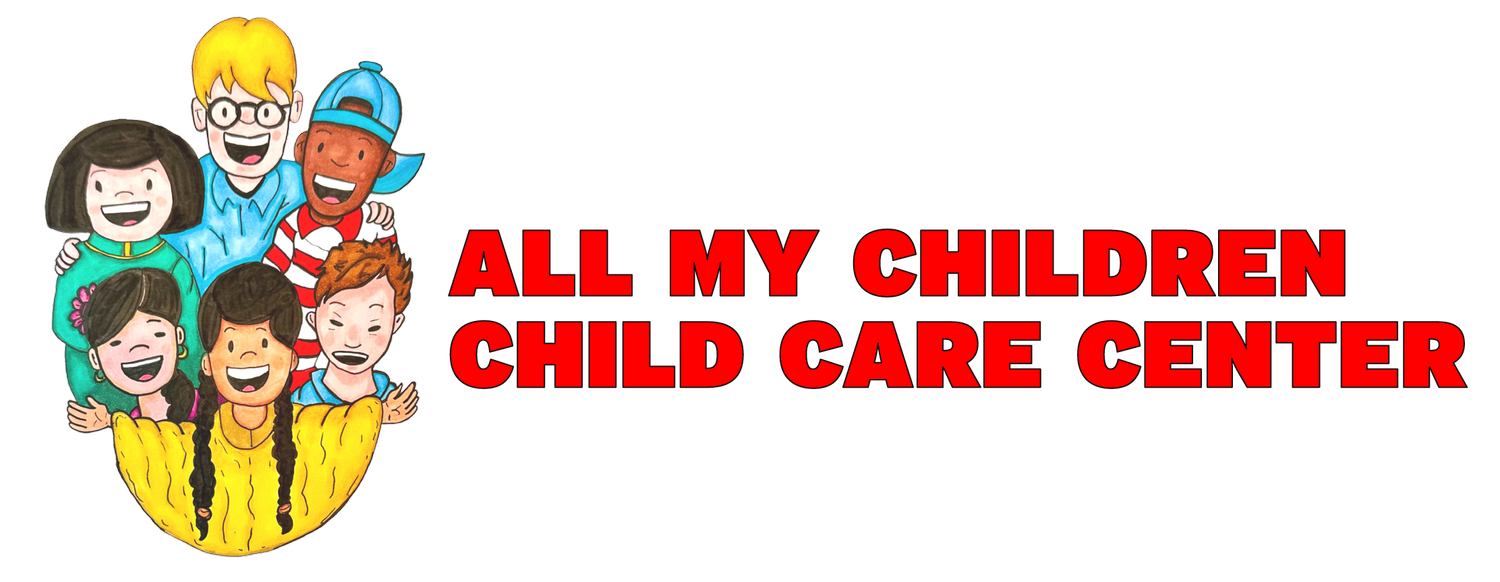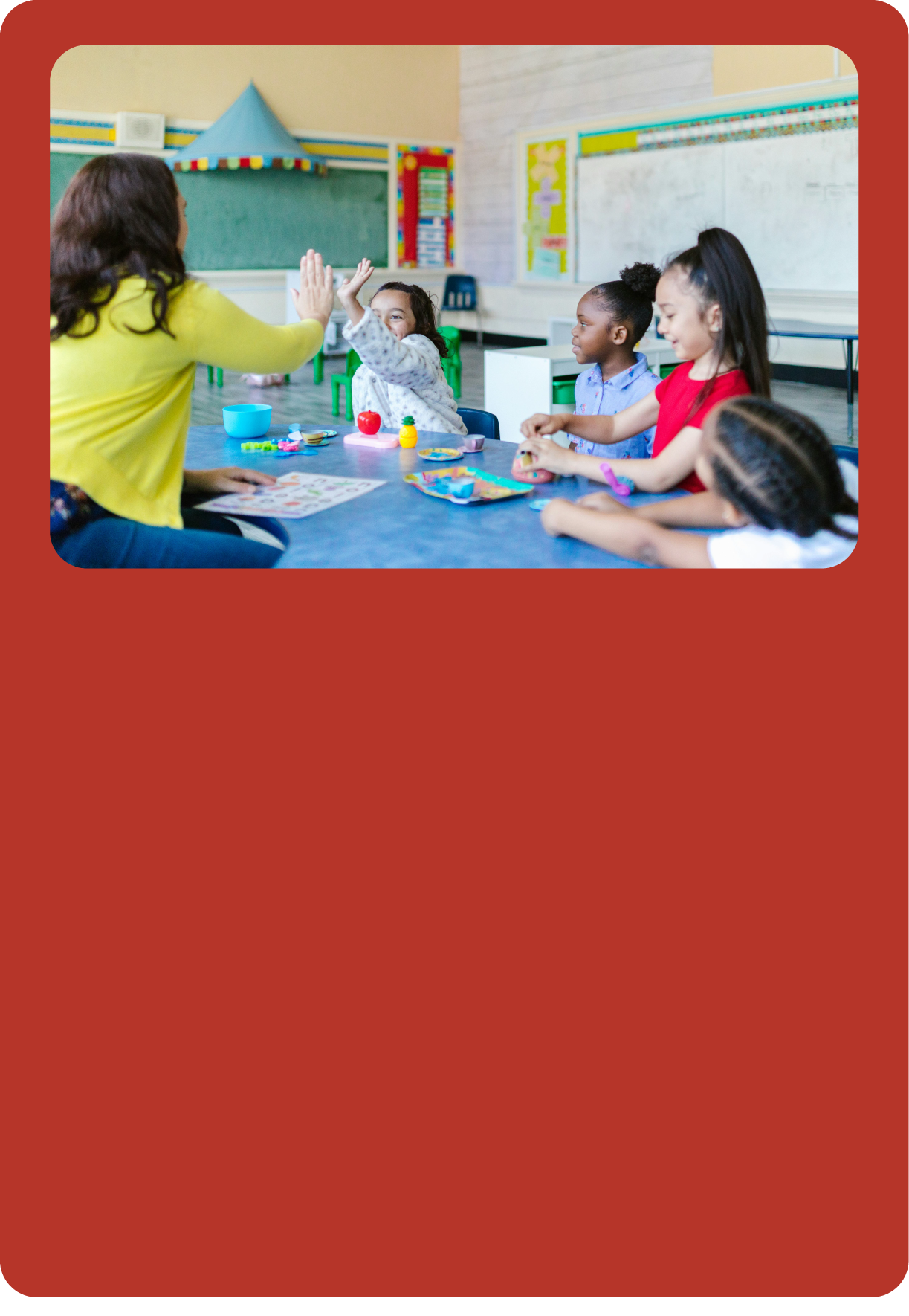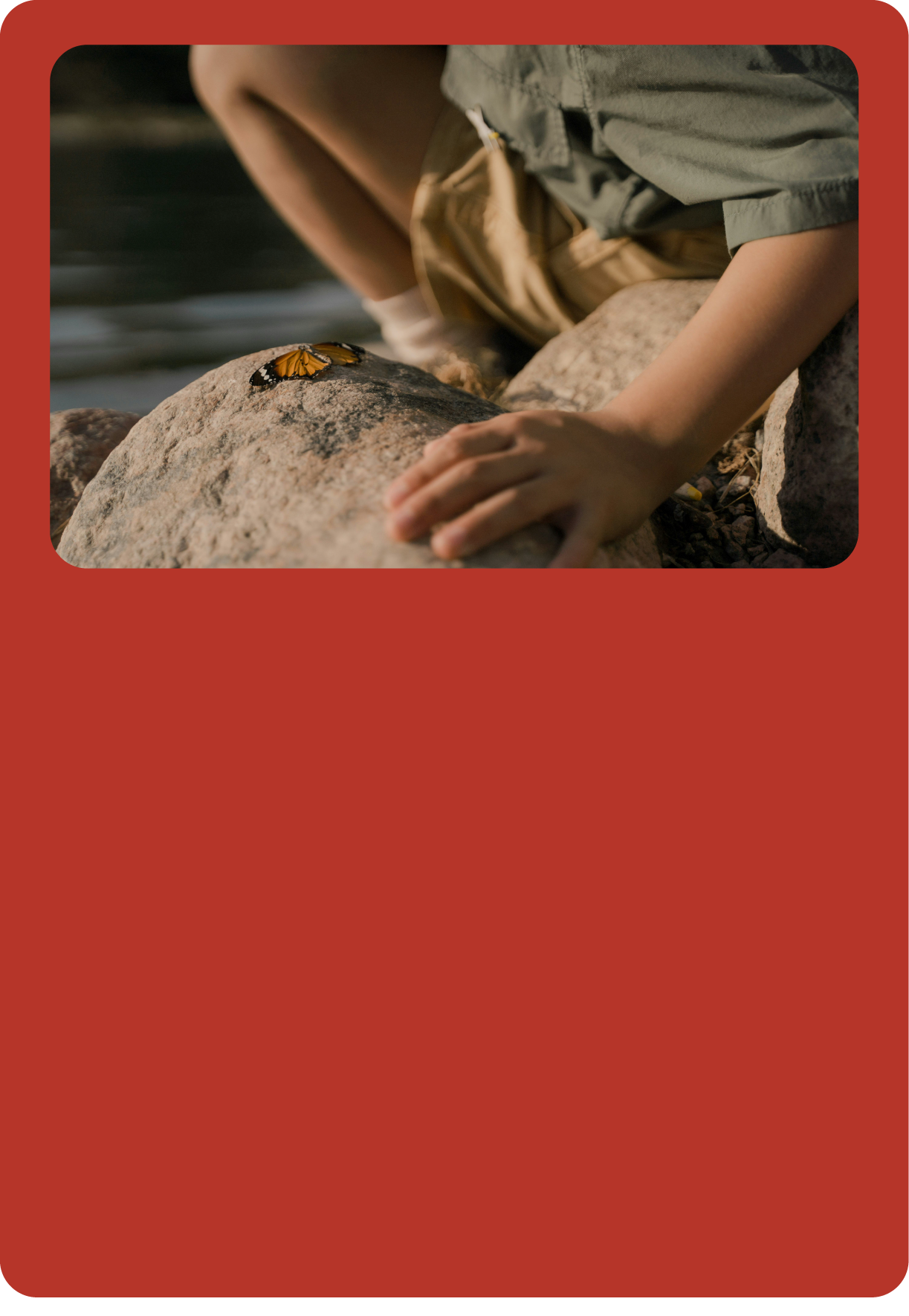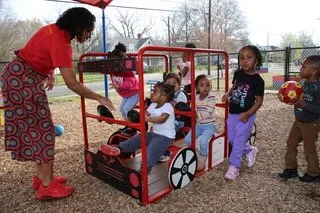All My Children Childcare Center Locations in
North Carolina
Our mission is to provide your children with a high-quality experience that enriches young children's and their families' lives. We want all children to have an optimum learning experience that will foster future learning and success in life.
We mean making changes or adjustments in planned activities and schedules in response to the individual needs and interest of each child. The Child Care environment is arranged to meet the developmental needs of the children in care. The learning centers offer the children many opportunities to explore, problem solve, make choices, and develop new skills.
At All My Children, we are more than a daycare—we are a place where children feel loved, supported, and inspired to grow. Through purposeful play and nurturing guidance, we lay the foundation for a lifelong love of learning, helping each child build confidence, curiosity, and joy that lasts well beyond the classroom.
Learning Together
Our approach is centered on teamwork, problem-solving, and social-emotional development. We help children learn how to think critically, express themselves with kindness, and build strong friendships that last.
52 Weeks of Wonder
Every week of the year, we design lessons that grow with your child’s natural interests and curiosity. Our program follows their questions, sparks their imagination, and builds skills at their own pace—making learning joyful and personal, every single day.
BalancedEnrichment
We provide a rich balance of STEAM learning (science, technology, engineering, arts, and math) alongside enrichment activities like yoga, music, and outdoor exploration. This whole-child approach nurtures creativity, movement, and curiosity while fostering healthy habits for life.
Explore Our Classrooms
-
Physical Development:
Motor Skills: Lifts head while lying on the stomach; rolls over; sits up with support; begins to crawl (around 6-10 months); stands with help; may take first steps by 12 months.
Fine Motor Skills: Grips objects; reaches for and holds toys; brings hands to mouth; starts transferring objects from hand to hand.
Cognitive Development:
Object Permanence: Begins to understand that objects continue to exist even when out of sight (around 6-8 months).
Cause and Effect: Responds to familiar faces and sounds; recognizes names of family members; reacts to sounds and voices.
Language Development:
Sounds: Coos, babbles, and makes various sounds; imitates sounds.
Communication: Begins to use gestures like pointing; understand simple words like “no” or their name.
Social-Emotional Development:
Attachment: Forms strong attachment to primary caregivers; enjoys social interactions with familiar people.
Emotions: Expresses emotions like happiness, frustration, and discomfort; shows interest in others.
-
Physical Development:
Motor Skills: Walks independently; climbs; runs; begins to jump and kick a ball.
Fine Motor Skills: Stacks blocks; uses a spoon and fork; begins drawing simple shapes; starts to dress and undress themselves.
Cognitive Development:
Problem-Solving: Understands simple concepts such as "in" and "out"; identifies familiar objects and people.
Imagination: Engages in pretend play; imitates actions of others (e.g., cooking, cleaning).
Language Development:
Speech: Vocabulary grows rapidly, beginning with single words and progressing to simple two- and three-word phrases.
Understanding: Follows simple directions ("Come here," "Give me the toy").
Social-Emotional Development:
Independence: Expresses desires ("Want cookie," "Do it myself") and shows signs of independence.
Emotions: Shows a broader range of emotions (e.g., excitement, frustration); may experience tantrums due to limited verbal skills.
Socialization: Enjoys parallel play (playing alongside but not with other children) and may begin to interact more with peers.
-
Physical Development:
Motor Skills: Improved coordination—can run, hop, skip, and balance on one foot; can catch and throw a ball; begin using scissors to cut along lines.
Fine Motor Skills: More control over small objects like crayons and buttons; can draw more recognizable shapes and letters; starts to write letters or numbers.
Cognitive Development:
Thinking Skills: Starts understanding concepts of time (yesterday, today, tomorrow) and categorization (colors, shapes, sizes).
Problem-solving: Can solve simple puzzles; follows a simple sequence of events; understands cause and effect.
Language Development:
Speech: Vocabulary expands to 1,000+ words; forms complete sentences; may start to use past tense correctly.
Understanding: Can answer simple questions; understands and follows more complex instructions (e.g., "Put your toys away before you sit down for lunch").
Storytelling: Begins to tell simple stories and describe events.
Social-Emotional Development:
Self-identity: Developing self-awareness, often using "I" and talking about likes/dislikes.
Social Skills: Shares and takes turns more regularly; plays in groups; engages in cooperative play.
Emotions: More expressive and able to label emotions; may start to show empathy for others.
-
Physical Development:
Motor Skills: Improved balance and coordination; can ride a tricycle or bicycle with training wheels; can skip, hop on one foot, and perform other basic physical tasks.
Fine Motor Skills: Begins to write their name; cuts along lines with scissors; build complex structures with blocks or Legos.
Cognitive Development:
Abstract Thinking: Begins to think logically about objects and events; understands concepts such as opposites (big/small, hot/cold).
Problem-solving: Can work through simple puzzles and problems independently or with minimal guidance.
Literacy: Recognizes some letters and their sounds; begins to recognize and write their name; may show an interest in reading and writing.
Language Development:
Speech: Expands vocabulary to include more complex words; uses sentences with more than five words; begins to understand humor.
Understanding: Can follow multi-step directions; answers more detailed questions (e.g., "What happened first?").
Storytelling: Tells stories with a beginning, middle, and end; may engage in pretend play and storytelling with peers.
Social-Emotional Development:
Peer Relationships: Forms stronger friendships and plays cooperatively with peers; begins to understand turn-taking and sharing.
Emotional Regulation: Better able to manage emotions, though may still need guidance with complex feelings (e.g., disappointment, anger).
Independence and Responsibility: They take on small tasks independently, such as dressing or helping with chores; they may have a better sense of responsibility.
-
Physical Development:
Motor Skills: We offer hands-on activities that encourage large body movements like jumping, running, and climbing, helping children build muscle strength, balance, and coordination.
Fine Motor Skills: Through activities like arts and crafts, building projects, and puzzles, children develop the fine motor skills they need for writing, cutting, and handling everyday tasks with confidence.
Cognitive Development:
Abstract Thinking: We promote imaginative play and creative problem-solving activities that help children explore ideas, make connections, and think beyond what they can see or touch.
Problem-Solving: Children engage in activities that challenge them to think critically, work through obstacles, and find solutions—skills that build resilience and independence.
Literacy: We support reading and writing development by providing access to books, storytelling, and literacy games that strengthen vocabulary, comprehension, and a love for learning.
Language Development:
Speech: We encourage children to share their thoughts, ideas, and feelings through group discussions, presentations, and guided conversations that build their confidence in speaking.
Understanding: Listening games and comprehension activities help children follow instructions, understand stories, and make sense of the world around them.
Storytelling: Through creative storytelling, dramatic play, and book discussions, children learn to express ideas clearly, build narratives, and engage their imaginations.
Social-Emotional Development:
Peer Relationships: Children learn teamwork, empathy, and friendship-building skills through group activities that promote respect, cooperation, and positive social interactions.
Emotional Regulation: Our caring staff teach children to recognize and manage their feelings, helping them build self-control, patience, and coping strategies for real-life challenges.
Independence and Responsibility : We create opportunities for children to take on leadership roles, complete tasks on their own, and make responsible choices—building confidence and self-reliance.
All My Children Childcare Center Locations in North Carolina
Locations
-
2101 Angier Ave, Durham, NC 27703
-
3011 Academy Rd, Durham, NC 27707
-
102 Glenda's Dr, Goldsboro, NC 27534







